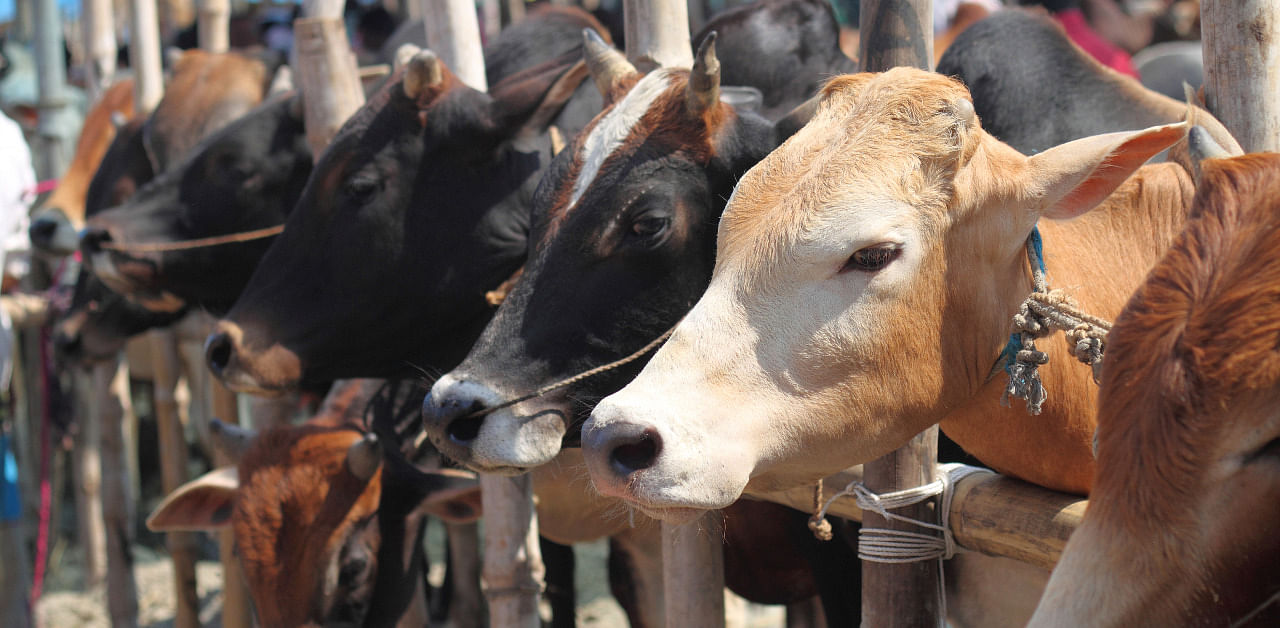
The contentious anti-cow slaughter law will not only hit those working in abattoirs, but will also affect the livelihoods of thousands of artisans employed in the leather industry.
The B S Yediyurappa administration is all set to promulgate an ordinance to give effect to the Karnataka Prevention of Slaughter and Preservation of Cattle Bill, which was passed in the Legislative Assembly, but not in the Legislative Council.
The Bill proposes to prohibit slaughter of cows and other cattle, virtually ending beef consumption. A cascading effect of this is the likely impact on the state’s leather industry, which includes the state-run Dr Babu Jagjivan Ram Leather Industry Development Corporation Ltd (Lidkar).
The number of industries involved in tanning and dressing of leather has gone up from 60 in 2014-15 to 161 at the end of 2019-20, according to the latest Economic Survey of Karnataka. Exports in the sector also grew steadily in the past few years -- the state exported Rs 562 crore worth leather products in 2018-19 and Rs 283 crore till November 2019-20, according to data.
Lidkar chairperson N Linganna acknowledged the threat, saying that the law “has a connection” with supply of raw materials. He said that aged cattle that die of natural causes will be used for its products. The new law defines ‘cattle’ as cow, calf of a cow and bull, bullock and he or she buffalo below 13 years of age, whose slaughter is prohibited. The only exemptions are cattle suffering from contagious diseases or buffalo above the age of 13 years, requiring certification from a ‘competent authority’.
A proprietor of a leather processing firm, under condition of anonymity, told DH that most of them were small-scale industries and will be affected. “We send raw material for processing in Ranipet (Tamil Nadu), from which gloves and other products are manufactured in the city. Now, we have to find an alternative as the machinery we have only works for leather products,” he said.
Former social welfare minister Priyank Kharge said the Bill came with ramifications for various communities dependent on this
profession.
“A similar legislation in Maharashtra hit the Rs 20,000-crore industry there,” he said, adding that Lidkar was revived a few years ago considering that leather is a $5.5 billion industry. “Thousands of artisans who were trained by the state government to make leather products will be left in the doldrums,” he said and pointed out that the Bill was more an economic issue than a food one.
